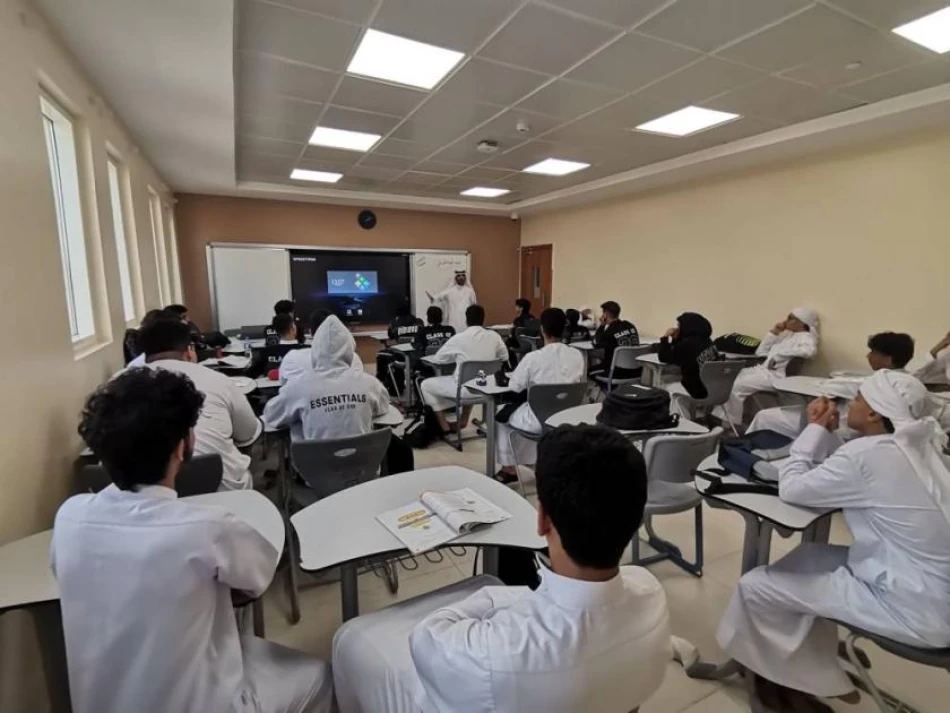
New Attendance Policy Welcomed by Parents: Insights and Reactions
UAE's New School Attendance Rules Signal End of Lenient Absenteeism Era
The UAE Ministry of Education's newly issued attendance guidelines have sparked intense debate among parents and educators, marking a decisive shift toward strict school discipline. The comprehensive framework transforms daily attendance from an optional courtesy into a mandatory pillar of academic success, with immediate family notifications and potential referrals to authorities for excessive absences.
Zero Tolerance Approach Reshapes Educational Philosophy
The guidelines establish clear protocols that begin with instant electronic alerts to families for any absence and escalate to formal case referrals when students exceed permitted absence limits. This systematic approach reflects a fundamental transformation in how UAE schools view attendance—not merely as administrative bookkeeping, but as the foundation of educational integrity.
Educational experts describe this shift as overdue, particularly after years of rising absenteeism around holidays, family occasions, and exam periods. The new rules specifically target the common practice of extending official breaks or skipping classes at semester beginnings, behaviors that became normalized during the pandemic era.
Digital Integration Empowers Real-Time Family Engagement
The immediate notification system represents a technological leap in parent-school communication. Unlike traditional monthly reports, families now receive instant alerts, transforming them from passive recipients of academic results into active participants in daily educational oversight.
Parent Mohamed Qasem supports the initiative, viewing it as reflecting "a philosophical transformation from schools as mere knowledge transmitters to institutions that reinforce societal values." This perspective aligns with broader UAE educational reforms emphasizing character development alongside academic achievement.
Implementation Challenges Raise Fairness Concerns
Despite widespread support, implementation nuances worry some stakeholders. Ibrahim Al-Neyadi, another parent, highlights the critical need for school committees to carefully distinguish between justified and unjustified absences. The success of these guidelines may ultimately depend on administrative flexibility and case-by-case assessment capabilities.
This concern reflects broader challenges facing rigid attendance policies globally. Countries like Singapore and South Korea have implemented similar strict measures, with mixed results depending on enforcement sensitivity and cultural adaptation.
Teachers Report Immediate Classroom Benefits
Educators across Dubai schools describe chronic absenteeism as creating "knowledge and behavioral gaps" that compound over time, potentially leading to academic dropout or performance decline. Teacher Ali Al-Mehiri emphasizes that regular attendance builds not just knowledge acquisition but crucial life skills of commitment and discipline essential for university and professional success.
Teachers Dina Hasoua, Maha Siddiq, and Fatima Salem report that frequently absent students lose curriculum continuity and fall behind peers, forcing educators to repeat lessons and allocate additional time—straining the entire educational system. They view the guidelines as establishing a "culture of commitment" that positively impacts both behavior and academic achievement.
Long-Term Vision Targets Professional Preparedness
School administrations frame these measures as professional preparation rather than punitive action. Their circulars explicitly connect attendance discipline to future workplace expectations, where absenteeism tolerance remains minimal. This approach mirrors educational philosophies in countries like Germany and Japan, where punctuality and attendance are considered fundamental professional skills.
Administrative data supports this correlation, with schools reporting that students with higher attendance rates consistently outperform chronically absent peers in examinations. The knowledge gaps created by irregular attendance prove difficult to compensate for, creating long-term academic disadvantages.
Market and Policy Implications
These guidelines position the UAE's education system for enhanced international competitiveness, particularly as the nation seeks to attract global talent and investment. Stricter educational standards align with the UAE's Vision 2071 goals of becoming a global education hub rivaling established centers like Singapore and the UK.
For private schools, which constitute a significant portion of UAE education, these standards may influence parent school selection criteria and fee justification. International schools operating in the UAE will need to balance home country flexibility with local regulatory compliance.
The initiative also reflects broader regional trends toward educational accountability, with Saudi Arabia and Qatar implementing similar reforms. Success in the UAE could influence policy adoption across the Gulf Cooperation Council, potentially standardizing attendance expectations regionally.
Most Viewed News

 Omar Rahman
Omar Rahman






